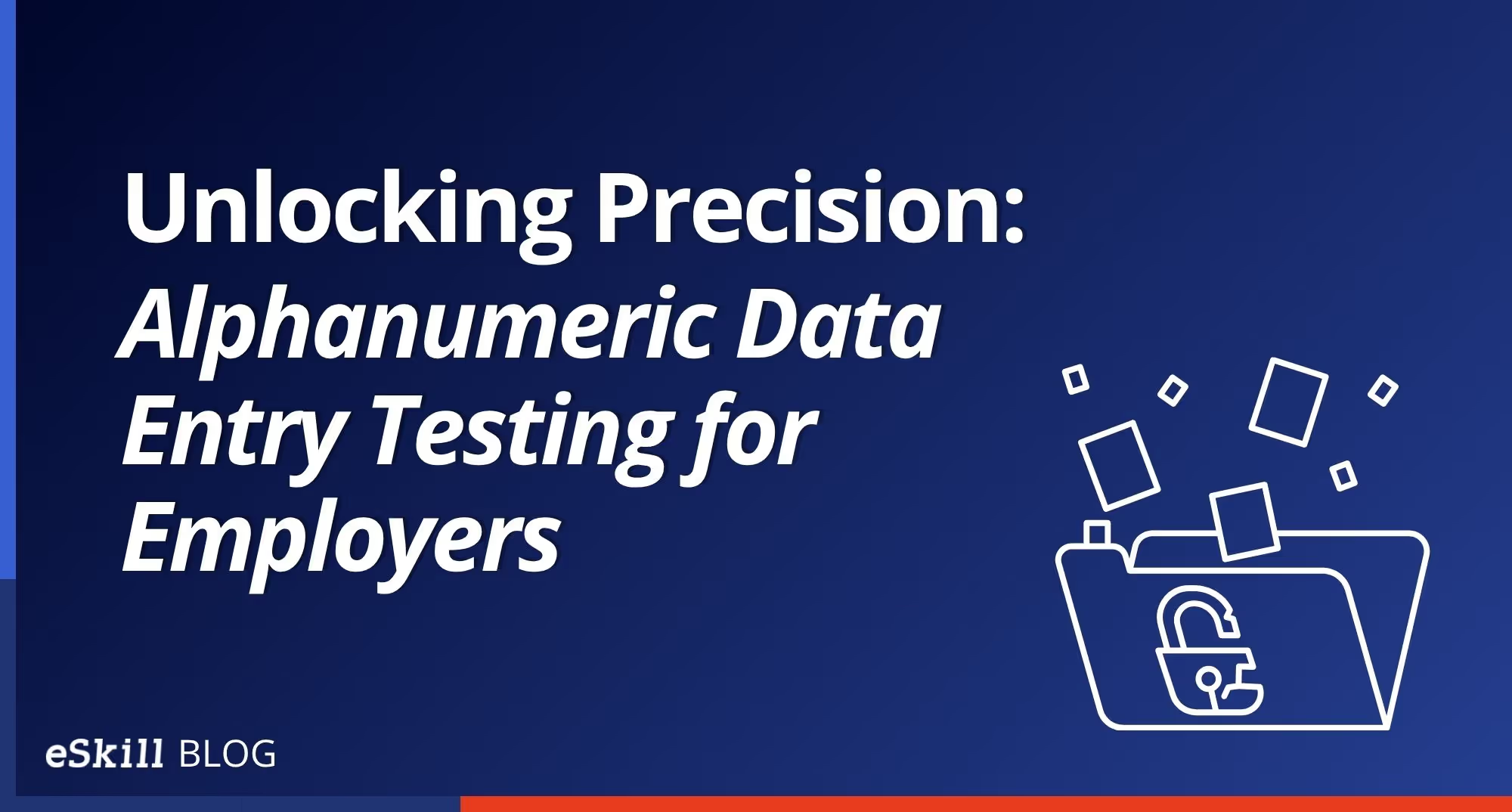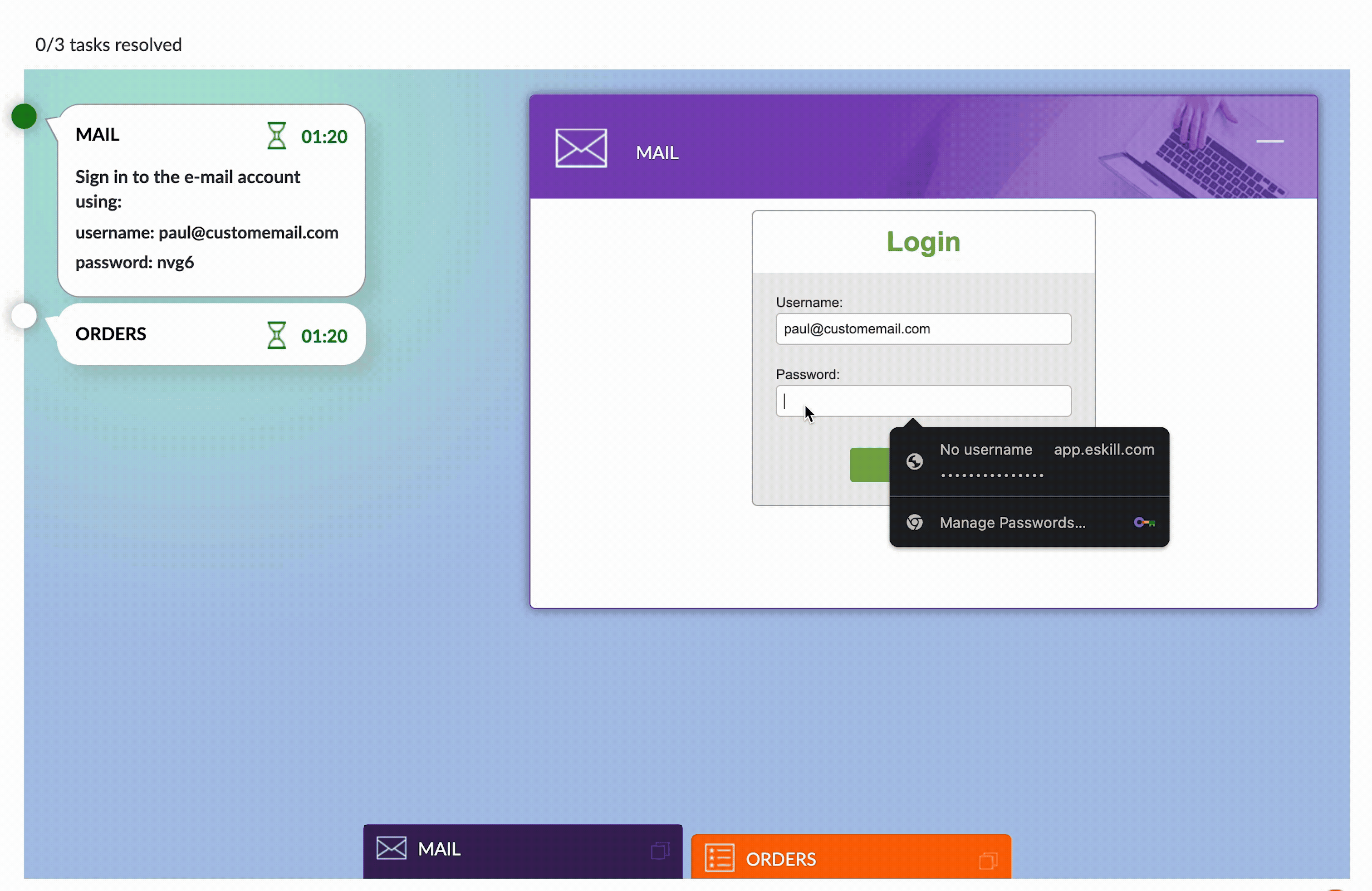Alphanumeric data entry refers to using a computer to input information that includes numbers and letters. Professionals who input alphanumeric data typically store it in databases and spreadsheets. Their job performance is evaluated on precision (number of keystrokes per hour) and accuracy.
The following are the criteria HR professionals and hiring managers look for when they create alphanumeric data entry tests to evaluate candidates for data entry jobs.
Accuracy: Organizations that process large amounts of alphanumeric data need employees who can input it accurately. Even minor mistakes and discrepancies can lead to major issues, such as inaccurate reports. Organizations often make critical decisions based on the conclusions they draw from reports, so they use alphanumeric data entry tests to ensure candidates can input alphanumerical information correctly.
Typing Speed: The ability to input alphanumerical data quickly is important to ensure efficiency and productivity. Fast data input means a business can process large amounts of information in a given period and apply it to its operations. This is why companies use alphanumeric data entry tests to be sure job applicants can quickly transcribe large amounts of data from physical to digital media.
Database Management
Speed and accuracy are core data entry skills, but the ability to organize large amounts of data is also essential. Efficient database management refers to creating an effective database structure, introducing the data, and classifying it by name, location, size, type, etc. Businesses use data entry tests to evaluate how well candidates can organize and manage data.
Spreadsheet Management
Spreadsheets have become a standard for inputting, organizing, analyzing, and storing data, so alphanumeric data entry professionals typically use spreadsheets to collect and analyze large amounts of data. Hiring managers understand the value of being knowledgeable about common spreadsheet functions and formulas, particularly for employees who work with complex data. So, they use alphanumeric data entry tests to confirm applicants understand the basics of working with spreadsheets.
Organization
Monitoring the source of data and its location in the computer system helps users locate information if they know how to use databases and spreadsheets effectively. So, organizations use alphanumeric data entry tests to reduce employee error and the risk that employees will confuse one data set with another or enter the wrong information.
Software Proficiency
Data entry professionals use software applications to input data, create spreadsheets, build databases, and maintain information in the organization’s computer system. They also make presentations based on data shared with internal and external stakeholders. So, businesses use data entry tests to ensure candidates are proficient in using popular software applications.
Customer Relationship Management
Customer relationship management (CRM) software is important for businesses as an effective method of inputting, organizing, and studying customer information, which normally includes customer name, address, contact information, order history, and descriptions of interactions with sales and service teams.
Time Management
Good time management abilities are essential for data entry professionals because they often need to organize and prioritize tasks when working on a major project. Advanced time management skills also help employees improve typing speed and accuracy. For example, they might decide to complete complex tasks at the beginning of their workday because they will likely be more focused and energetic.
How Organizations Use Alphanumeric Data Entry Tests
Companies in every industry use alphanumeric data entry tests to identify and hire top candidates. These are examples of clients that have used them to improve hiring outcomes, decrease time-to-hire, and reduce turnover.
- Chemonics, a multinational consulting and solution development company, implemented basic Excel skills tests and other alphanumeric data entry tests. It has reduced time-to-hire to 55 days and is working to reduce it to 45 days from the initial interview to accepting a job offer. It has also reduced turnover by 43%.
- An auto warranty company offers automotive claims administration and vehicle service contract expertise. By using alphanumeric data entry tests, it can fill positions in four to six days and has reduced employee turnover from 40% to 23%.
- Texas811 is a non-profit organization that notifies utility companies and city and county governments, which are members of its network, about planned excavations near their underground lines. It used to take hiring teams six to eight weeks to fill entry-level call center positions. Using typing and alphanumeric data entry tests has enabled them to make hiring decisions in one to two weeks—a decrease in time-to-hire by approximately 75%.
- AJM Packaging Corporation is a family-owned business that has grown from a small paper cup manufacturer to a national leader in disposable tableware. It implemented eSkill’s alphanumeric data entry tests to assess candidates’ typing speed and accuracy. Comprehensive skills testing immediately paid off for AJM Packaging. Its HR team can make hiring decisions with confidence, and the company has significantly reduced hiring errors.
Get Started with Data Entry Tests
HR teams that want to hire top candidates use data entry tests to get the measurable data they need to evaluate candidates accurately, efficiently, and fairly.
Do you want to learn how data entry and alphanumeric data entry tests can help you recruit top candidates and improve hiring outcomes? Contact us to request a demo.
Talk to sales






